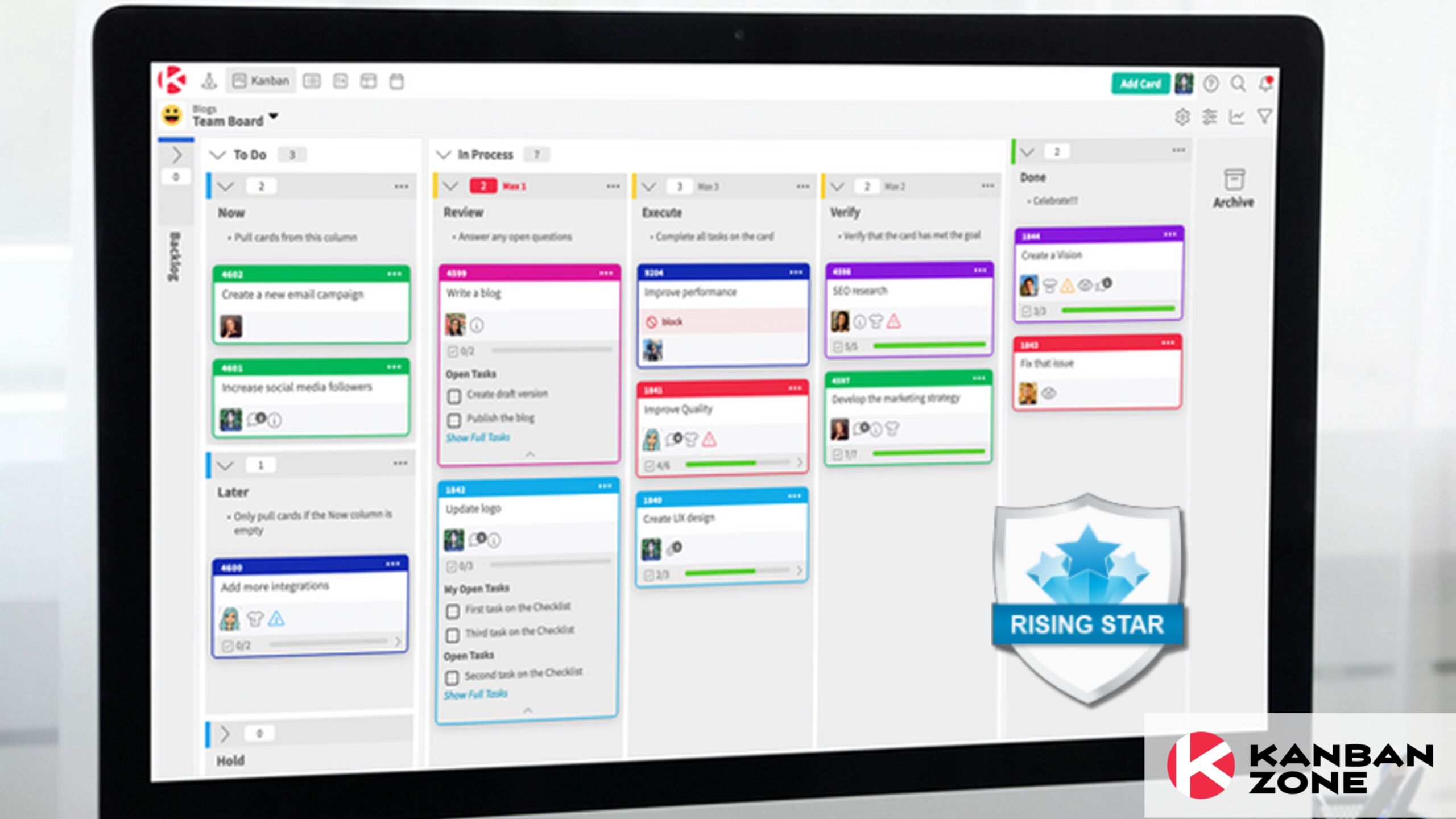
Businesses evolve at a rapid pace. To respond to market challenges and expectations, organizations need to keep up with the changing trends in technology, market behavior, and work culture. These changes don’t only affect how businesses innovate, but they also affect how companies operate. Time and again, we see project management trends come up in response to these changes. A notable response we see is how Kanban is used by companies to respond to project management challenges and trends.
What originally started in the car manufacturing industry is now used by various industries. We see it being used in the tech, medical, financial, and marketing industries to name a few. Many are seeing the benefits of Kanban for project management.
In this article, we discuss some of the project management trends we’ve seen and how Kanban helps businesses respond to them.
Virtual Teams and the Gig Economy
One of the project management trends we see across the globe is the emergence of remote workers or freelancers. For instance, more companies are getting remote workers to augment their full-time workforce. And telecommuting is also fast becoming the norm. Thanks to technology, the job market has expanded and companies have the ability to work with qualified professionals wherever they are. However, working with distributed teams does not come without challenges. It can be a project management nightmare without proper planning and structure in place.
Communication is a key challenge when working with remote teams. Keeping everyone aligned can be tricky. This is where project management and communication tools come in handy. Online Kanban tools help project managers keep work flowing smoothly within the team. Having a visual medium for teams to communicate bridges the geographical distance and becomes a point of reference for teams to move forward. Not only does Kanban become a medium for communication, but the core practices of it help teams achieve a steady flow and pace at which they work.
Hybrid Project Management Approaches
One of the most notable project management trends we see is when companies use a mash-up of Agile and traditional project management approaches. This comes as organizations recognize that there is no one-size-fits-all approach to project management and execution. The level of complexity that product development demands from teams today require the best bits of well-known Agile methodologies and Waterfall practices.
What this means though is that project managers are expected to be skilled in multiple project management techniques and methodologies. Project managers are expected to assess when flexibility is needed and what methods and tools they should utilize. The role of a project manager is nowhere close to static. Project managers need to keep themselves abreast in terms of technology, leadership, and strategic and business management skills. Companies are looking to hire professionals who are well-versed in a variety of project management approaches.
What Kanban brings to the table in this sense is a highly buildable technique that project managers can use on top of their existing methodology. With its focus on flow efficiency, project managers can use Kanban to elevate their practice and empower their teams for continuous delivery.
Focus on Data Analytics
With AI taking center stage, we have large amounts of data at our fingertips. This focus on data analytics is one of those project management trends that we see will continue to be a staple requirement for product development. That’s why it’s no surprise that companies focus on data analysis to drive their business strategies.
Project efficiency, team performance, and customer satisfaction are just some of the important metrics that businesses strive to keep hold of. The challenge for project management is to ensure that the business collects and has access to the right type of data. It’s also the project manager’s job to articulate the data in a way that is relatable and actionable for the business.
Some of the key metrics and data that Kanban presents to teams are cycle time, work in progress, and work item age. These metrics help project managers and their teams visualize their performance and efficiency. Online Kanban tools have built-in reports and analytics features that give these insights that project managers can incorporate into their process improvement plans.
The Rise of Project Managers and Kanban
Organizations are increasingly seeing the value of project managers in the workplace. PMI’s Job Growth and Talent Gap report estimate that about 87.7 million individuals working in project management-oriented roles will be needed by 2027. The growing recognition of project management roles has pushed organizations to create Project Management Offices (PMO). PMOs are seen to drive project success metrics by managing the entire value chain.
PMI’s Pulse of the Profession report, Success in Disruptive Times, highlights the value of PMOs in bridging the gap between the business and its customers. PMOs are seen not only as an administrative body but as strategic partners that drive business success. In this we see more professionals continue to develop their skills in project management and make it a full-blown career.
We are also seeing Kanban’s expansion across multiple industries. Gone are the days when Kanban was only seen to help workers on the shop floor. Now, we see it being used in other industries, most notably in software development. It’s being evolved and melded with other Agile methodologies, to amplify any team’s flow efficiency. I believe these two project management trends come together.
As the demand for project managers rises, the demand for them to have Kanban in their project management arsenal will also increase. This is because Kanban’s non-intimidating approach to introducing change proves to be a good weapon of choice for PMs when transitioning teams to other project management methodologies. It’s also because Kanban proves to be an effective technique that pushes teams towards greater efficiency, productivity, and continuous improvement.
The Future of Project Management
Project management is expected to step up as innovation and technology drive the business landscape. While we will see more project management trends pop up, we can expect that project managers will rise to the occasion and bring forth the best techniques, ideas, and tools to respond to these challenges and trends. With the aid of technology, project managers are prepared to adapt and be an active contributor to the future of project management.
Learn to Work Smarter, Not Harder!
Get our top articles weekly.
Table Of Contents
Discover many more posts…







